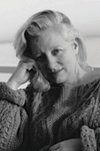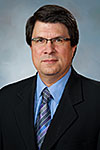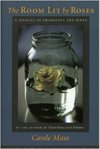Novelist shares stories written with musical influence
Carole Maso has been immersed in music, language and creativity ever since she was a child.
Her father was a jazz trumpet player who played music for the family, and her mother used to read her stories at night and sing lullabies. That is what she considers the beginning of her love for language.
“It’s from there that all the kinds of stories I tell and places I go originate – from the language itself,” she said. “I consider language to be more music than just something that conveys information. In that way, it’s related and close to poetry, which is why some people call me a poet.”
Maso, a novelist and professor of literary arts at Brown University, will be the next speaker in the University of Houston-Victoria/American Book Review Reading Series. She will read from her work at noon Nov. 5 in the Alcorn Auditorium of UHV University West, 3007 N. Ben Wilson St. The free reading is open to the public.
“Carole Maso’s writing offers an innovative yet relatable perspective,” said Jeffrey Di Leo, dean of the UHV School of Arts & Sciences, and ABR editor and publisher. “She lends a voice to moments that are often highly personal and intimate, and I am glad to welcome her to Victoria.”
Although Maso admits that some of her work originates from real events in her life, she typically transforms the story through what she calls the “magic of fiction.” The one exception to that was her book, “The Room Lit By Roses.”
That book started as a personal journal documenting Maso’s pregnancy and birth of her daughter, Rose, who is now 17. She had never kept a journal before, and the majority of her previous writing was works of fiction.
“When I became pregnant, it felt to me very much like this was something I needed to document, or I was going to forget it on some level,” she said. “This was a nine-month structure in which something extraordinary was going to happen, and I wanted to keep a record of it.”
Eventually, she published the journal as a memoir, and her relationship with her daughter was reflected in her later book, “Mother and Child,” inspired by one particularly harrowing time.
“An enormous maple tree fell on my house,” she said. “All the power went out, and I started hearing things in the night. It wasn’t until the next night, when things had been sorted out, that I realized there had been bats in the house. That sent me into another state, and I started writing about this mother and child moving through dangerous psychic terrain in all kinds of ways.”
When she writes, Maso considers music part of her inspiration and creative process. Her work often includes a certain cadence that contributes to the story. In “Mother and Child,” she included a sense of wrestling with a kind of severity, compression and silence that danger brings up. She describes the stories as being almost biblical.
“I find the Bible extremely hypnotic and beautiful and inscrutable,” she said. “There are always these odd little parables, and I could never quite figure out what some of them meant or what I was supposed to understand from them. And because of that, those stories would stay with me, and I would end up thinking a lot about them. ‘Mother and Child’ is styled the same way.”
“The Passion of Frida Kahlo,” was written with a different cadence. Kahlo was a Mexican painter involved in a bus crash as a child. She eventually lost her leg, and Maso’s writing intones a lopsided cadence that reflected Kahlo’s walking gait as well as some of the irreverent attitude in the barroom songs the painter loved. The book is a combination of journal entries written by Kahlo and original pieces by Maso that complemented the painter’s thoughts. What resulted was an odd combination of prose poetry, diary, letter and biography, Maso said.
“My work tends to be experimental, but I don’t think it’s inaccessible,” she said. “I hope the audience will just surrender to the visceral and emotional experience, like one did as a child.”
The last speaker in the UHV/ABR Reading Series will be David Marion Wilkinson on Dec. 3. Wilkinson is an award-winning author and screenwriter. He has written five books, including “Not Between Brothers: an Epic Novel of Texas” and “One Ranger: a Memoir.” Much of his published work has been optioned for film or TV projects. Earlier this year, Wilkinson appeared in the History Channel documentary “Avenging the Alamo: The Road to Texas Rising.” Wilkinson divides his time between Austin and Los Angeles. He is a member of the Texas Institute of Letters and Western Writers of America.
ABR is a nonprofit, internationally distributed literary journal published six times a year. It began in 1977, moved to UHV in 2007 and has a circulation of about 8,000. The journal specializes in reviews of works published by small presses.
For more information about the UHV/ABR Reading Series, call the ABR office at 361-570-4101 or go to www.americanbookreview.org.
The University of Houston-Victoria, located in the heart of the Coastal Bend region since 1973 in Victoria, Texas, offers courses leading to more than 80 academic programs in the schools of Arts & Sciences; Business Administration; and Education, Health Professions & Human Development. UHV provides face-to-face classes at its Victoria campus, as well as an instructional site in Katy, Texas, and online classes that students can take from anywhere. UHV supports the American Association of State Colleges and Universities Opportunities for All initiative to increase awareness about state colleges and universities and the important role they have in providing a high-quality and accessible education to an increasingly diverse student population, as well as contributing to regional and state economic development.
Lauren Hightower-Emerson
361-570-4342







